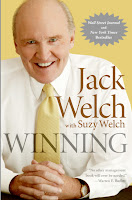This can become a danger for PNG's political system if there are too many graduates who dont have anything meaningful to do with their knowledge yet they have an expectation that after all the hard work of going to school and getting good grades and graduating from University, they too should benefit from the bounties of PNG.
This has been extracted from the Economist and published with no edits.
Free Exchange – Can Too Many Smart People Be a Dangerous Thing? | Finance & Economy
T.DE YEARS before Peter Turchin, a scientist at the University of Connecticut, made a surprising prediction in nature. “The next decade is likely to be a period of growing instability in the US and Western Europe,” he said, pointing in part to the “overproduction of young graduates with advanced degrees.” The ensuing rise in populism in Europe, the unexpected votes in 2016 for Brexit and then for President Donald Trump in America, and a wave of protests from the Gilets Jaunes to Black Lives Matter, has made Mr. Turchin a celebrity in certain circles and aroused the interest of economists in the discipline “Cliodynamics”, which uses mathematics to model historical change. Mr Turchin’s emphasis on “overproduction by elites” raises nasty questions, but it also offers useful political lessons.
According to Turchin, even in ancient Rome and imperial China, societies developed from periods of political stability to instability, often at intervals of about 50 years. Look at America. Every expert knows that Congress is bogged down and that Democrats and Republicans are unwilling to compromise with each other. Less know that it was also highly polarized around 1900 before it became more cooperative in the mid-20th century.
What causes this jerk from calm to chaos? Mr. Turchin sees societies as large, complex systems that are subject to certain patterns, if not laws. This is a completely different approach than much of academic history, which favors small microcosmic studies, argues Niall Ferguson of Stanford University. In an article published earlier this year, Mr. Turchin (with Andrey Korotayev from the Higher School of Economics in Russia) examines the prediction of instability he made in 2010. His forecasting model contains many elements, but like Karl Marx, Mr Turchin seems to believe that “the history of all societies that existed so far is the history of class struggles. “However, where Marx focused on the proletariat, Mr. Turchin is more interested in the elite – and how their members fight one another.
Who counts as an elite and how the competition manifests itself differs from place to place. An example could be a large number of highly educated people relative to the number of government offices (and therefore jobs). However, a struggle is most likely when economic inequality is high. The rewards of being at the top are then particularly lucrative, both in terms of earning power and political influence, and those who miss are more likely to feel their loss. The feeling of resentment is especially strong in people who believe they should be in the elite. Worse still, societies tend to produce more and more potential elites, also because access to education tends to improve over time. Mr. Turchin sees all of this as a recipe for political chaos. Articulated, educated people rebel and lead to a struggle for political and economic power. Elites stop cooperating, counter-elites emerge and order collapses.
The argument undoubtedly speaks about historical nuances. Focusing on disaffected elites, however, is not a bad way to understand political instability. Hugh Trevor-Roper, a historian, observed: “Social crises are not caused by the clear opposition of mutually exclusive interests, but by the tug of war between opposing interests within a body. “The French Revolution was not primarily the result of misery, but a struggle between an underemployed educated class and hereditary landowners. Historians identify “the problem of an excess of educated men” as contributing to Europe’s revolutions of 1848. Mr. Turchin suggests that while slavery was the immediate cause of the American Civil War, a more fundamental one was the resentment of emerging Nordic capitalists towards the southerners who stand in their way.
Elite overproduction can also help explain the malaise that has gripped the rich world of late. It has become extremely difficult for a young person to achieve elite status, even if they work hard and go to the best university. Real estate prices are so high that only heirs have a chance to imitate their parents’ living conditions. The power of some “superstar” companies means there are few really prestigious jobs. Mr. Turchin estimates that America produces around 25,000 “surplus” lawyers each year. Over 30% of UK graduates are “over-educated” for their jobs.
All of this explains, in some ways, a seemingly puzzling trend: Why seemingly wealthy people are drawn to radicalism. Under Jeremy Corbyn, the British Labor Party attracted more upper-middle and middle-class people than before, although it moved further to the left of the Tories. The lead among the youngest graduates was clear. Joe Biden’s lead over Bernie Sanders in polls during the Democratic primary was far less among Americans who graduated from college than from those who hadn’t graduated from high school.
Predicting an earthquake
Mr. Turchin’s theories predict that the political tremors will eventually subside. “Sooner or later, most people yearn for stability to return and the fighting to end,” he argues. The data already shows that support for both left and right-wing populist parties is waning in Europe. According to polls, Mr. Trump will soon be voted out. Another option for those who want to avoid instability is to reduce the number of emerging elites. Boris Johnson, the UK Prime Minister, has urged better professional education, saying: “We need to recognize that a significant and growing minority of young people are leaving university and working in non-graduate jobs.”
However, enlightened elites can more effectively prevent the emergence of political instability. At the beginning of the 20th century, American reformers raised inheritance taxes to prevent the emergence of a hereditary aristocracy and carried out massive breaches of trust. Modernizing urban systems could lower housing costs and deregulating labor markets would help create good jobs for “surplus” elites. Mr. Turchin’s analysis of the structural forces that govern societies is a fascinating explanation for political unrest. But cliodynamics doesn’t have to be fate. ■
This article appeared in the Finance & Economics section of the print edition under the heading “Graduates of the World, Unite!”





Comments
Post a Comment